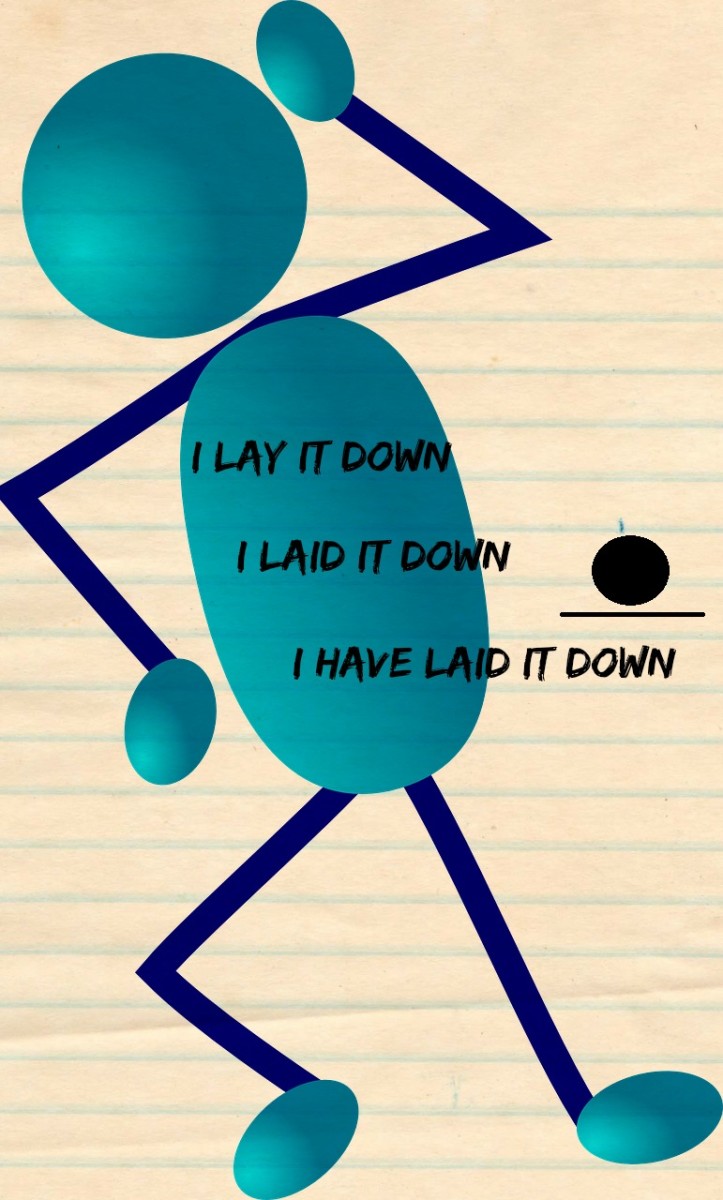
"Long lay the world in sin and error pining" A later line in the song, "Right over the place where Jesus lay," presents the same issue. But in context, you can see that the song is in the past tense, and we're again dealing with that confusing form of lie. If you heard the second line of "The First Nowell" in isolation, you might ask what the shepherds were putting down. "The first Nowell the angels did say / Was to certain poor shepherds in fields where they lay" But remember that the song is in the past tense, so we need the past tense of lie, which is lay. In the next line, we hear "The stars in the bright sky looked down where He lay." It might look wrong if you follow the lie/ lay distinction. Because the song is in the past tense, we want the past tense form of lay: laid.

In "Away in a Manager," the baby puts his head down. "The little Lord Jesus laid down His sweet head" Because he's reclining rather than putting something down, lies is the correct choice. In the next stanza, we get "Why lies he in such mean estate / Where ox and ass are feeding," referring to the baby Jesus reclining in the food trough (the manger). With all the babies being put down and stories being told in the past tense, lay seems to overwhelm the list, but here we have a clear use of the present lie. "O Little Town of Bethlehem" is a rarity among the Christmas carols I reviewed for being in the present tense ("Joy to the World" is another, but it doesn't lie or lay anything). If we compare some song lyrics to our conjugation table above, we, too, can learn to keep lie and lay separate. Many of the traditional English Christmas carols we hear at this time of year were written or translated during the 19th century and thus use lie and lay distinctly. Whether you do or not, you're wise to know the difference, if only to know why you're being criticized.

It's again becoming the fashion to use lay to mean "to recline," but it's a slow change and plenty of people like to keep the distinction. But from the 19th century on, we became aware of the "error" and taught people to correct it. But they're not, so we struggle to try to keep lie and lay straight:Īnother reason for the confusion is that lay is often used to mean "to recline." In fact, prior to the 19th century, that usage was common and unremarkable. It would help if the "to recline" lie were conjugated the same way as the "to tell a falsehood" lie: lie, lied, lied. English language users have long struggled with lie, meaning "to recline," and lay, meaning "to put down." This is in part because the past tense form of this lie is, well, lay and the past participles of the verbs are very similar.


 0 kommentar(er)
0 kommentar(er)
